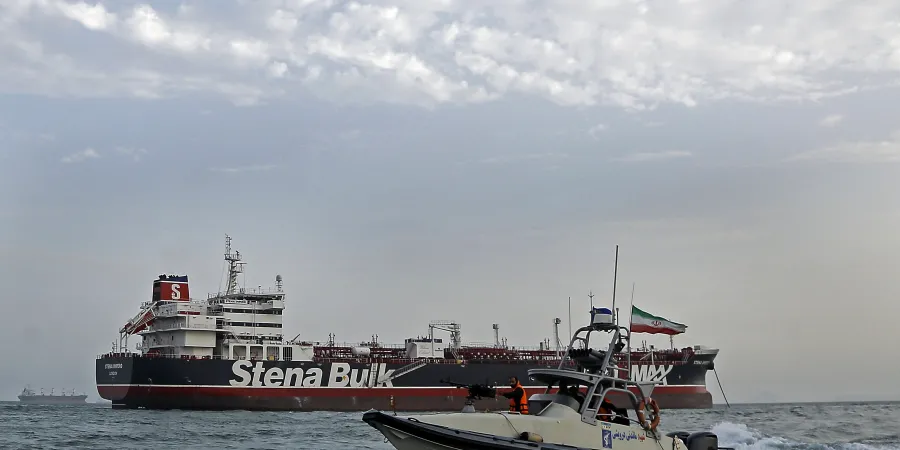US Warns of Iranian GPS Spoofing Threat
The US Department of Transportation has issued a new warning about Iranian threats to commercial vessels sailing in the Strait of Hormuz and the Persian Gulf, including GPS interference and communications jamming
IsraelDefense
| 08/08/2019
The US Department of Transportation’s Maritime Administration issued a warning on Wednesday highlighting threats to commercial vessels posed by Iran.
The warning revealed that ships have had a variety of issues when operating in the region. “In at least two of these incidents, vessels reported GPS interference. One vessel reportedly shut off its Automatic Identification System (AIS) before it was seized, complicating response efforts.
“Vessels have also reported spoofed bridge-to-bridge communications from unknown entities falsely claiming to be US or coalition warships,” the administration said.
“Due to the heightened regional tensions, the potential for miscalculation or misidentification could lead to aggressive actions against vessels belonging to US, allied and coalition partners operating in the Arabian Gulf, Strait of Hormuz, and Gulf of Oman,” US Central Command (CENTCOM) said in a statement, adding that ships have reported experiencing “GPS interference, bridge-to-bridge communications spoofing, and/or other communications jamming with little to no warning.”
A US defense official told CNN that Iran has deployed GPS jammers to Abu Musa Island, an island in the Persian Gulf located near the Strait of Hormuz, in an attempt to disrupt civilian aircraft and ship navigation systems.
With their GPS systems not functioning properly, these ships or planes could mistakenly wander into Iranian waters or airspace, giving Iranian forces the pretext needed to seize them, the defense official explained.
The official further said that Iranian military boats have been “spoofing” the automatic identification system merchant ships use to report and disguise their vessels as merchant ships instead of Islamic Revolutionary Guard Corps or Iranian Navy vessels.
The US Department of Transportation has issued a new warning about Iranian threats to commercial vessels sailing in the Strait of Hormuz and the Persian Gulf, including GPS interference and communications jamming
The US Department of Transportation’s Maritime Administration issued a warning on Wednesday highlighting threats to commercial vessels posed by Iran.
The warning revealed that ships have had a variety of issues when operating in the region. “In at least two of these incidents, vessels reported GPS interference. One vessel reportedly shut off its Automatic Identification System (AIS) before it was seized, complicating response efforts.
“Vessels have also reported spoofed bridge-to-bridge communications from unknown entities falsely claiming to be US or coalition warships,” the administration said.
“Due to the heightened regional tensions, the potential for miscalculation or misidentification could lead to aggressive actions against vessels belonging to US, allied and coalition partners operating in the Arabian Gulf, Strait of Hormuz, and Gulf of Oman,” US Central Command (CENTCOM) said in a statement, adding that ships have reported experiencing “GPS interference, bridge-to-bridge communications spoofing, and/or other communications jamming with little to no warning.”
A US defense official told CNN that Iran has deployed GPS jammers to Abu Musa Island, an island in the Persian Gulf located near the Strait of Hormuz, in an attempt to disrupt civilian aircraft and ship navigation systems.
With their GPS systems not functioning properly, these ships or planes could mistakenly wander into Iranian waters or airspace, giving Iranian forces the pretext needed to seize them, the defense official explained.
The official further said that Iranian military boats have been “spoofing” the automatic identification system merchant ships use to report and disguise their vessels as merchant ships instead of Islamic Revolutionary Guard Corps or Iranian Navy vessels.



